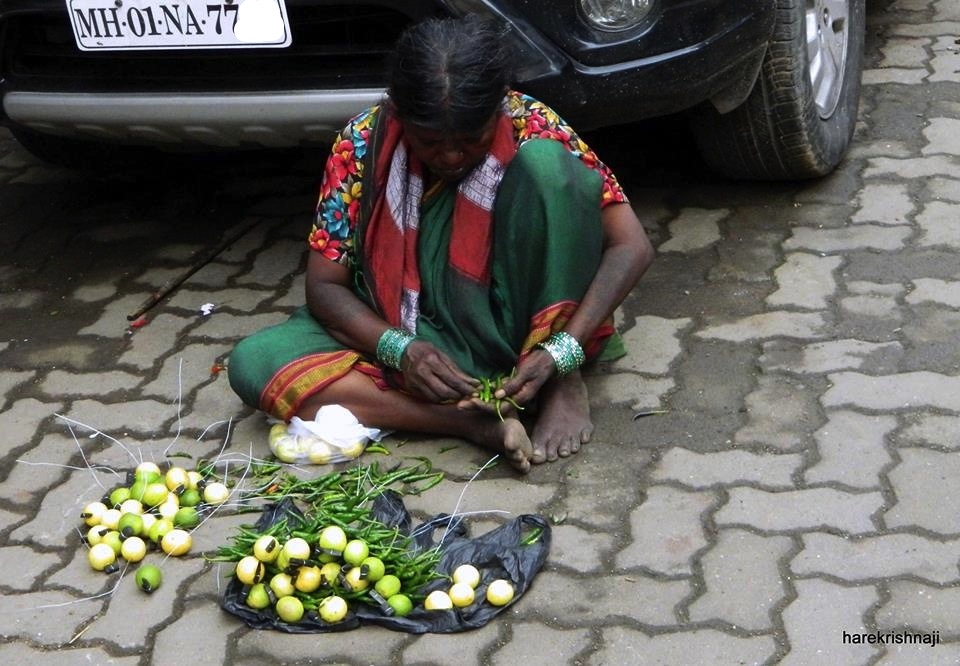
In India, it is not very uncommon to find lemon and chilies hanging outside the entrances of houses and offices. Many vehicle owners hang them on their vehicle bumpers, with some flaunting it with pride over their rear-view mirrors. Some over-zealous believers even stick its image on their account registers and on their company websites.
Started hundreds of years ago, this superstition has stood the test of time and continues to be used until today albeit for not the same intent or utility.
So how did this superstition come into being?
The rationale for people to use the nimbu-mirchi totka (lemon and chilly remedy) stemmed from their individual perspectives. Some were influenced by its mythological significance while some used it for purely scientific reasons. Let’s look at each of these perspectives individually.
Mythological
As per legends, Goddess Lakshmi has a twin sister named Alakshmi. While Lakshmi symbolizes wealth and prosperity, Alakshmi symbolizes poverty and suffering. Lakshmi is always accompanied by Alakshmi everywhere, hence they started offering different foods to appease their individual tastes. Fruits and sweets began to be served as offerings to Lakshmi during pujas to invite her into the house and spread wealth and prosperity. Alakshmi who likes spicy and sour food was appeased with lemon and chillies by hanging them outside the house or office door. It was assumed that Alakshmi would be satiated by having her favorite food outside the house itself and would not have any urge to enter the house thereby avoiding the evil eye or sufferings.
The lemon and seven chilies combination to ward off the evil eye came to be popularly known as Nazar Battu and was replaced with a new one every Friday night. The old Nazar Battu was thrown away somewhere far from the house so that the evil could not locate the house. It was believed that whoever stepped upon the discarded Nazar Battu imbibed all the evils absorbed by it during the week. Those who unknowingly stepped on it immediately burnt it while reciting a mantra to safeguard themselves from the ill effects.
Scientific
In ancient times, there were no commercial pesticides available. So, to keep the pests and insects away, people devised a home remedy instead. Lemon and seven chillies were tied to a cotton thread and hung outside the door. When the lemon and chilies were pierced and tied with a cotton thread, the smell of the acid from the lemon and the germ-killing smell of the chilies helped to keep the mosquitoes & flies away from their homes and shops. The lemon and chilies were changed every few days as the juice of lemon and chilies would get vaporized and thereafter it stopped serving its intended purpose.

Why were lemon and chilies used on Vehicles?
Unlike the tar and concrete roads of the modern era, the roads in ancient times were just pathways through jungles and dirt-filled patches. People developed a practice of hanging lemon and chillies on their bullock carts and carriages while traveling. For long journeys, they would squeeze the juice from the lemon, which contains vitamin C, into the water and drink it to refresh themselves. This not only quenched their thirst but also prevented dehydration.
It was also common for people to be bitten by snakes while traversing these pathways, especially after sunset when visibility was poor. In case of a snake bite, people immediately bit on chilies to check their taste buds. If they felt their taste buds, the bite was considered to be one by a non-venomous snake and taken lightly. If they could not feel their taste buds, it was considered an attack by a venomous snake, of which loss of sense of taste is a symptom. This helped them reach out for help and assistance immediately. Thus, one could say that lemon and chilies served as a handy mobile first-aid kit during the ancient days.
Final Verdict
The marvel of our ancestors to devise creative methods to overcome the hurdles prevalent in their times can’t be denied. Though the nazar battu is not as relevant today for pest control given the availability of cheap pesticides, the practice continues until today with probably even greater fervor. As if to further magnify its impact, people have additionally begun plastering the text “Buri Nazar Wale Tera Mooh Kala” on their vehicles or building walls for those who dare cast an evil eye. For many of those believing in its ability to ward off the evil eye, fear is a significant driving factor. Fear of violating tradition, fear of upsetting the apple cart of one’s good life by needlessly inviting bad luck, etc. This holds true to not just this, but many other superstitions that remain alive over generations by feeding off our individual fears.
Such time-honored practices are like stones that were rolled down the mountains thousands of years ago and have gathered a lot of moss around them. As with every non-scientific belief system, it is eventually up to you to either embrace and pass it further down to your progeny or discard it just as a function that has outlived its utility.
TO READ THE FULL ARTICLE

Get full access to the exciting content on The Mirrority by logging in
Support independent journalism
Even the very best of media houses in our country today are yielding to the pressure of click-bait journalism in order to survive. More than ever before, our country needs journalism that is independent, fair and non-pliant to the bureaucracy. Such journalism needs the support of like-minded readers like you to help us survive editorially and financially.
Whether you live in India or India lives inside you, help us continue to produce quality journalism with your contribution.
CONTRIBUTE
